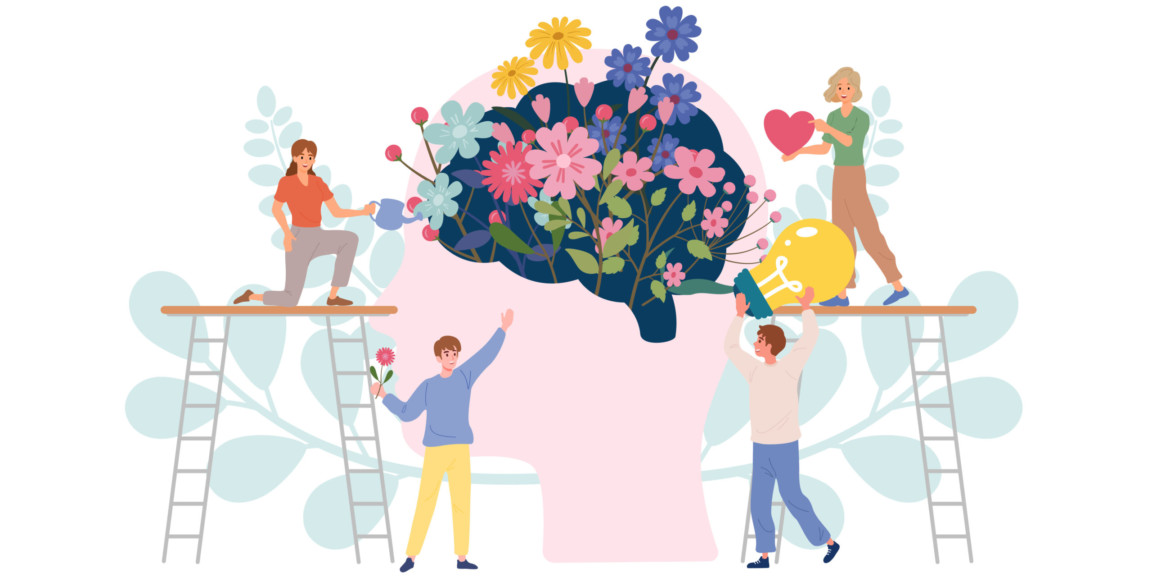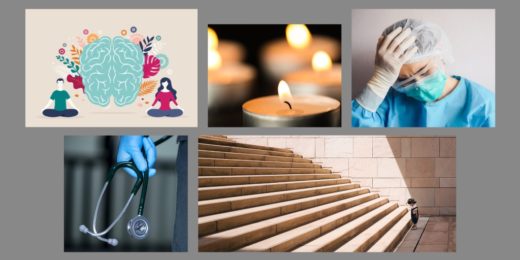Globally, one in five people will be affected by a serious mental health issue. Yet, according to Thomas Insel, the former head of the National Institute of Mental Health, despite tens of billions of dollars invested in neuroscience and genetics research, we've hardly moved the needle in improving the lives of people living with mental illness.
What would it take to translate cutting-edge science into accessible, effective mental health care? At the inaugural Mental Healthcare Innovations Summit held Oct. 6, a collaboration between the Stanford Healthcare Innovation Lab and the Tony Blair Institute for Global Change, experts from various sectors came together to discuss this question and share new innovations, approaches and collaborations in mental health care.
"So many people are suffering from mental health challenges, and it's clear that we need new solutions. We saw the summit as an opportunity to bring together policy makers, government, funders and health care systems with visionary creators and researchers who are rethinking innovation in mental health," said Ariel Ganz, PhD, a postdoctoral fellow in the lab of Michael Snyder, PhD, professor and chair of genetics, and the lead organizer of the event.
In the coming months, a Mental Health Innovations Council will form to lead and continue this work. "We hope the ongoing council will continue to connect diverse thought leaders and creators across mental health to amplify each other's projects and implement them to serve communities locally and globally," Ganz said.
I talked with Leanne Williams, PhD, the Vincent V.C. Woo Professor, a professor of psychiatry and behavioral science, and a panelist at the summit, about the importance of cross-sector partnerships and the potential of precision mental health.
The summit brought together people from different sectors who are working on mental health: researchers, policy makers and industry. Why is this important?
We really need different fields - including health care providers, advocacy groups and companies - to come together to develop new interventions. Now with more recognition that we're in a mental health crisis, as the U.S. surgeon general has declared, there's more and more interest from other industries to develop tools and approaches to address it. These new approaches include some exploratory therapeutics, like MDMA and other psychedelics, that were previously thought of as drugs of abuse but may have therapeutic value.
As a scientist, I think it's absolutely essential that companies innovating in the mental health space partner with researchers. We can help guide the use of new inventions or therapeutics, advising on who might benefit and what types of mental health conditions they might serve best. We want to give people hope that's real and based in evidence.
That ties into your work on precision mental health. What are some examples of how a precision approach can improve the way we approach mental health?
The most straightforward example is using a precision approach to optimize our currently available treatments or interventions. People with clinical depression typically go through a long process of trial and error to find a treatment that works for them. And only one-third respond to treatment and recover. That's not something we would find acceptable for other chronic illnesses, particularly one affecting so many young people.
Currently, the way that we assess depression is very much based on symptoms, and we rely on self-reported experiences. But say you had an infection. You would want to know what type of infection so you could take the right antibiotic; the same is true for cancer medicine. We need that for mental health. Right now doctors don't have a way to make a more specific diagnosis.
But through large, controlled trials, we're working on measures that give us clues to what's causing mental health symptoms. We can use imaging to better understand how the brain is functioning. With that data, we see at least eight different biotypes of depression, which help us predict with over 70% accuracy who's going to respond to a particular treatment. You can supplement that approach by looking at genetics, which can tell you how quickly someone is likely to metabolize a certain antidepressant.
It may even be possible one day to use wearables for precision mental health by correlating measures of heart rate and sweat rate, for example, with different types of depression.
What would it take to translate your findings about depression biotypes to the doctor's office?
There's a huge amount of interest in precision mental health. We saw that at the summit, and I see it in individuals who have experienced mental health challenges themselves or in their families. We need to scale these new tools, make them more accessible and introduce them to the next generation of mental health professionals. Generating evidence in a research setting is essential, but we also have to know if it's useful in a clinical setting.
Unlike other areas of health care, mental health care is very fragmented. It spans psychiatry, psychology, primary care, online care and other disciplines. There isn't an integrated system, so individuals have to navigate their own mental health recovery path. But they may not know where to start or how to navigate through the different options.
My vision is one integrated care program that provides mental health assessments. Based on the results, the physician outlines a path forward - whether it's lifestyle changes, medicines or other therapeutic options - that will more likely benefit the patient.
Photo by nateejindakum






